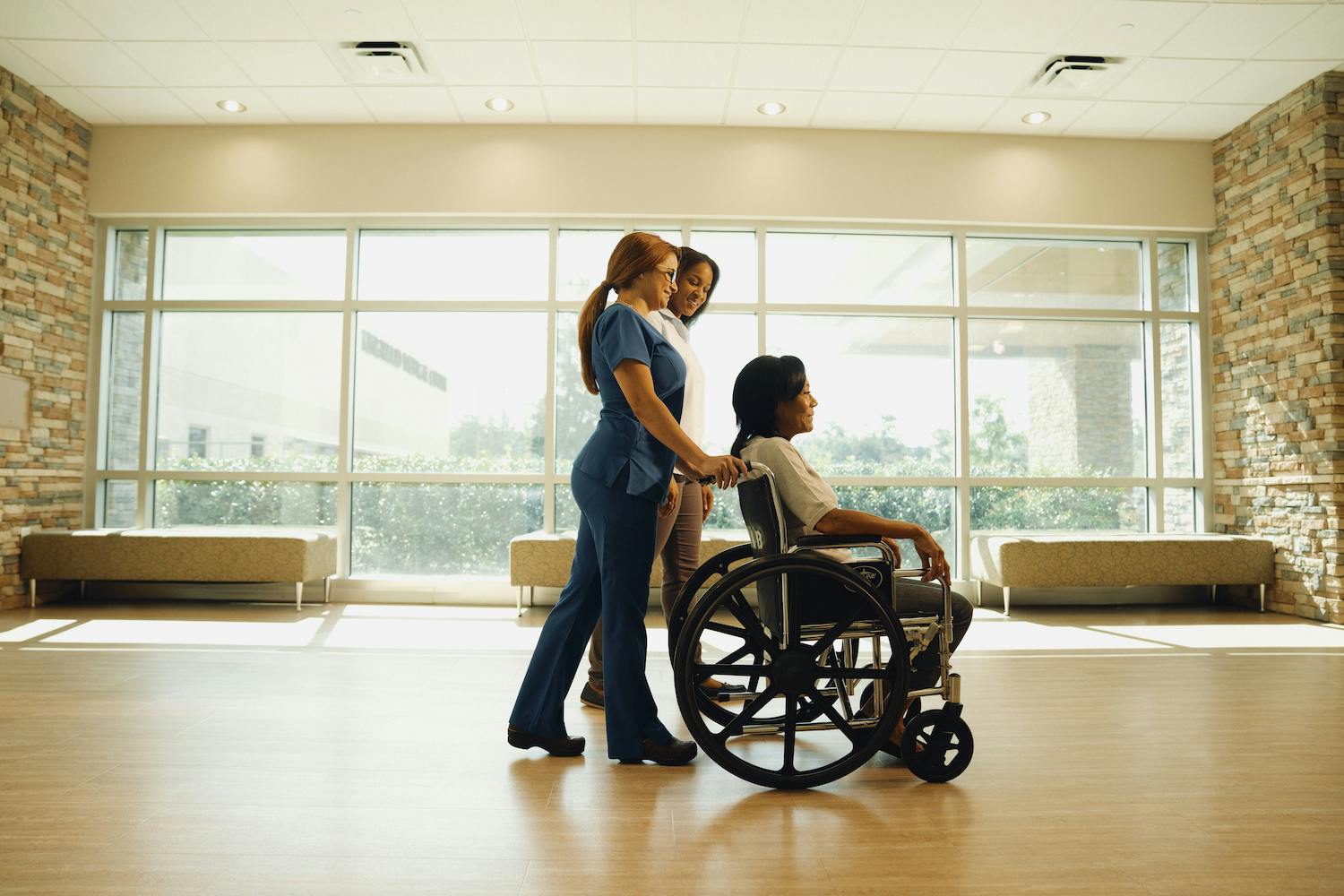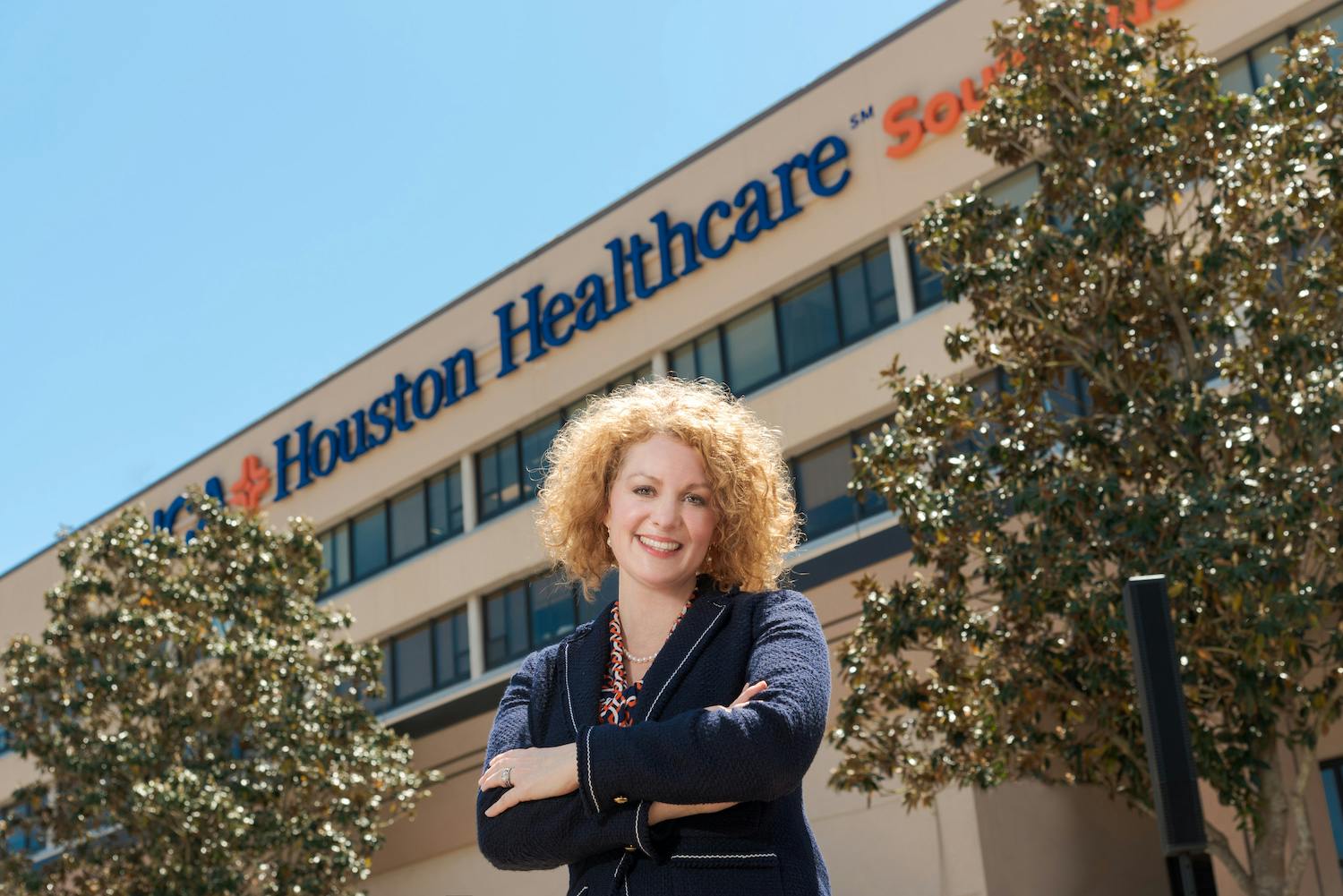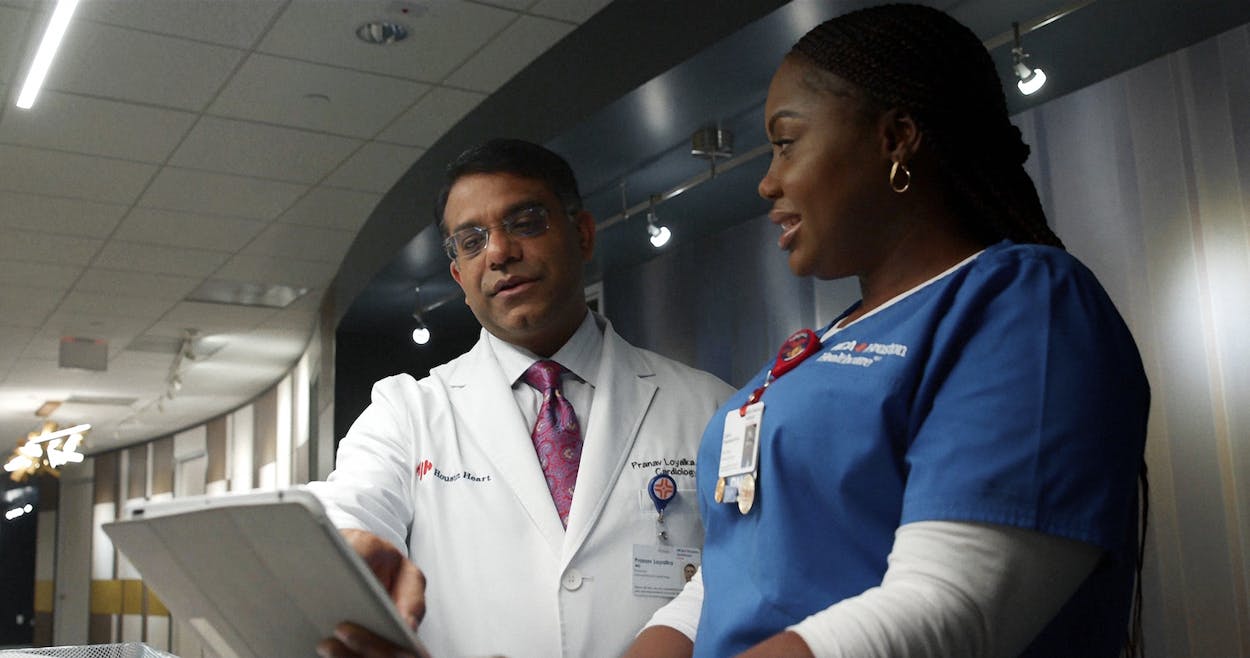When the COVID-19 pandemic began to ravage Louisiana, a beloved small-town physician caught the coronavirus. His case was particularly aggressive, and soon after he was diagnosed, the physician’s condition took a turn for the worse.
“He didn’t have a great chance at survival,” says Pranav Loyalka, M.D., a cardiology specialist at Houston Heart, one part of HCA Healthcare’s presence in Houston. “It was clear how very, very serious this was.”
As Dr. Loyalka and his colleague treated the physician with a technique called ECMO—giving his lungs and heart vital support—the texts, calls, and emails started flowing in. Dozens of people from Louisiana were worried about their physician, terrified he wouldn’t survive COVID-19. Luckily, he was in some of the best hands possible.
Thanks to Dr. Loyalka, his talented team, and the technology Loyalka pioneered while at another hospital in Houston, the physician from Louisiana was back home within ten days. He became just one of more than 11,000 people admitted for COVID-19 at the thirteen HCA Houston hospitals: 11,000 mothers, fathers, sons, and daughters saved by physicians like Dr. Loyalka. This is the incredible difference Dr. Loyalka and his colleagues are making for Texans in Houston and the surrounding area. The physician doesn’t take the credit, though; according to him, those lives were saved by HCA Houston Healthcare.
“I’m at a facility that hardly did any cardiology two years ago,” Dr. Loyalka says. “Now, it’s providing the highest level of care. To see our patients do well, to see the tears of gratitude in their eyes, that’s why we do what we do.”
HCA Houston Healthcare facilities combine the best of both worlds. While the healthcare network has a global reach with the technology and innovation to match, devoted physicians like Dr. Loyalka are committed to their patients and the community. Indeed, that “best-of-both-worlds” capability is embedded within the network’s DNA.
HCA Healthcare is a network of specialized and community-based facilities, a set-up that helps physicians and staff create tight-knit relationships with patients and each other. That, in turn, leads to top-tier care. Take the network’s Clear Lake facility: The hospital is home to roughly 500 beds, a comprehensive stroke center, a Level III Neonatal Intensive Care Unit (NICU), and a skilled team performing minimally invasive heart procedures.

“We may be the largest healthcare provider in the world, but our true strength is the ability to scale best practices,” says Evan Ray, the Executive Vice President and Chief Administrative Officer of HCA Healthcare’s Gulf Coast Division. “When you can scale all of these amazing practices, you create an environment where skilled physicians deliver the best care possible.”
As HCA Healthcare shows, physicians and medical professionals are happiest when they have the tools they need and the space to build relationships. In 2020, HCA Houston Healthcare was named a “Best Place to Work” by Modern Healthcare for the second year in a row. Furthermore, HCA Houston Medical Center was recently recognized as a five-star Centers for Medicare & Medicaid Services (CMS) hospital, the highest quality ranking a hospital can receive. Ray takes immense pride in providing a home for the best physicians, and he knows those physicians have high expectations for themselves and their colleagues.
HCA Houston Healthcare is proving that a local hospital with global reach can make the difference for Texans.
“We push each other to deliver better care and be better in everything we do, and not just in our facilities,” he says. “The COVID-19 pandemic accelerated the collaboration with other healthcare systems in Houston, and we’ve been sharing our best practices with our local partners.”
Since HCA Houston Healthcare facilities are located in an area that was hit hard by COVID-19, the network had to quickly adapt to the pressures of being on the front lines. According to Ray, they weren’t just prepared, they thrived.
“From our communication strategies to our overall emergency preparedness, we didn’t miss a beat, and now we’re stronger than ever,” he says.
Mujtaba Ali-Khan, D.O., Division Chief Medical Officer, echoes that sentiment. Dr. Ali-Khan led the network’s COVID-19 response, and he was amazed by how physicians, nurses, and staff rose to the occasion.
“We recently lost a physician to COVID-19, but before he got sick, he was dedicated to his patients 24/7,” Dr. Ali-Khan says. “He told me, ‘This is what I’m meant for, so this is what I’m going to do.’”
When devotion like that is complemented by amazing resources, the patients benefit.
“We have more than 30 million patient encounters in our 185 hospitals* a year,” Dr. Ali-Khan says. “When you have that big of a database and amazing data scientists like we do, you’re able to make better decisions for every single patient.”

If you talk to any physician, staff member, or administrative leader within the vast yet streamlined HCA Healthcare network, you’ll likely hear them share a company credo that guides much of their work: “We are physician-led, professionally managed, and evidence-based. The network’s leaders want to offer the very latest technology and the very best workplace for physicians to gather. But more importantly, they want to make sure their community and their patients know HCA Healthcare has their back,” says Ray.
“Physicians want to live close to where they work and they also like to live in a great place,” says Jeanna Bamburg, CEO of HCA Houston Healthcare Southeast. “If you’re an amazing physician looking for a place to do great work, you don’t have to live in Boston or New York City—you can live here.”
Physicians and medical professionals are happiest when they have the tools they need and the space to build relationships.
Bamburg and her fellow leaders are committed to Houston and the communities they call home. This devotion to Houston goes back to the 1970s, when hospitals like The Woman’s Hospital of Texas were leading the new frontier for women’s care. Ever since, HCA Houston has leveraged its global network to bring Houston and surrounding towns the healthcare of tomorrow. A key element of that mission is recruiting and caring for talented physicians and staff.
When the pandemic made it harder for nurses to get groceries, HCA Houston Southeast opened an in-house grocery store. When staff didn’t feel safe going out to get a haircut during their time off, a barber was brought in to give them safe cuts. Bamburg says steps like that are part of the “big city access with a small-town feel” crucial to HCA Houston’s identity.
“My first job was in a local community hospital, where the personal relationships are important,” she says. “You know you’re going to be taken care of by someone that you’re going to see in line at the grocery store, and that’s how I want our patients in Houston to feel, too.”

Just as importantly, Bamburg also wants the community to benefit from HCA Houston’s resources. That’s why the network created a simulation ambulance to help educate the area’s emergency medical services (EMS) personnel. The ambulance travels to different EMS sites, and while an HCA Houston employee runs a simulation (an infant with a rapid heartbeat, for example) the EMS staff respond in real time.
“No one wants to come into a hospital on their day off, so we created this simulation and drive it to them so they can learn while they’re on duty,” Bamburg notes.
HCA Houston Healthcare remains committed to innovation for Houston denizens, Texans, and patients throughout the country. The network recently started using algorithm-driven technology to detect sepsis, a life-threatening condition that claims more lives per year than breast cancer. This SPOT technology (named after a dog because it “sniffs out” sepsis at an early stage) has helped save some 8,000 patients. That, in a nutshell, illustrates the HCA Healthcare difference.
Whether working to save lives during the COVID-19 pandemic or working towards the next great medical innovation, HCA Houston Healthcare is proving that a local hospital with global reach can make the difference for Texans.
“We’re saving lives,” Evan Ray says. “At the end of the day, that’s what we’ll always be about.”
*HCA Healthcare network includes 53 hospitals in Texas, as well as 126 across the United States and 6 in the United Kingdom.







